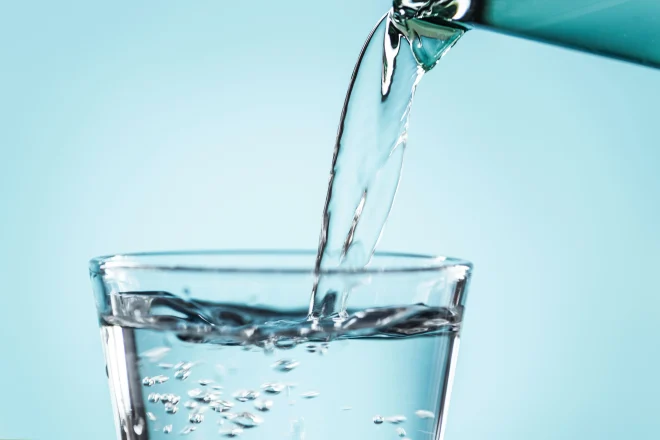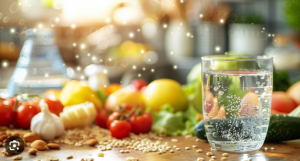
How Water Supports a Healthy Diet
In addition to its many roles in the body, water supports the entire digestive process from start to finish and is essential for healthy digestion. If you’re like many people, digestive health is more of a concern than ever. Part of the interest in gut health has to do with a wealth of new research highlighting the importance of a healthy “gut microbiome,” the bacterial colony that lives in and affects the intestines. There are many systems in the body.
So, to keep your digestive system healthy and happy, you’ll know that eating probiotics (the “good” bacteria) and prebiotics (certain types of fiber that act as “food for the probiotics”) and getting enough fiber can help waste move out of your system and support regular functioning. But there’s something simpler and easier that can help your digestive system function better: Water. Water is involved in almost every step of the digestive process, which is another reason why staying hydrated is important for your health.

How does water aid digestion?
From the beginning of the digestive process, water is the main component of saliva.
Saliva has many functions:
- It helps moisten food, making it easier to chew and swallow.
- It also carries enzymes that begin to break down fats and carbohydrates as you digest them.
- When food enters the stomach, it produces juices. These juices also contain enzymes that break down the proteins and carbohydrates in the food you eat into smaller pieces, preparing them for passage into the small intestine, where most of the food is absorbed. Water is also needed to form the mucus that lines the inside of the stomach and protects it from very acidic digestive juices.
By the way, the claim that “drinking water with meals will damage the digestive juices and prevent them from working properly” is also not true. Adequate fluids in meals help support this function.

How does water support a healthy gut?
As food passes through the small intestine, water aids in several digestive processes:
- Excess fluid is released into the small intestine from the pancreas and liver, as well as from the colon itself.
- Enzymes speed up chemical processes and help prepare the end products of digestion for absorption: amino acids in proteins, fatty acids in fats, and simple sugars in the carbohydrates you eat.
- Most nutrient absorption occurs in the small intestine, where digested food is then passed into the surrounding water of the blood.
Water is also very important, as the digestive process continues in the large intestine:
- The soluble fibers you eat (from foods like oats, beans, and barley) dissolve in water, causing them to swell and gain bulk.
- The insoluble fibers you eat (from foods like grains and mostly vegetables) hold onto water more than they absorb, and they like water, which aids in digestion.
- The lower bowel is also where your body absorbs most of the food you eat, and water is helpful for its absorption.
There’s no doubt that digestive health is dependent on fiber intake (probiotics are also a good idea). Exercise is also important; when you engage your pelvic floor muscles during exercise, you’re also strengthening the smooth muscles of your digestive system, which helps promote regularity. But don’t forget the simplest, easiest thing of all: make sure you’re drinking plenty of fluids every day to keep your body functioning properly.
